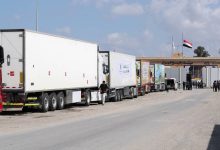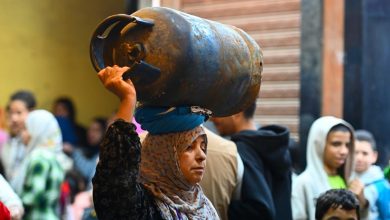Meat Returns to Gaza Markets at Unprecedented Prices
Soaring costs and limited purchasing power hinder residents from accessing basic food supplies amidst ongoing hardships.
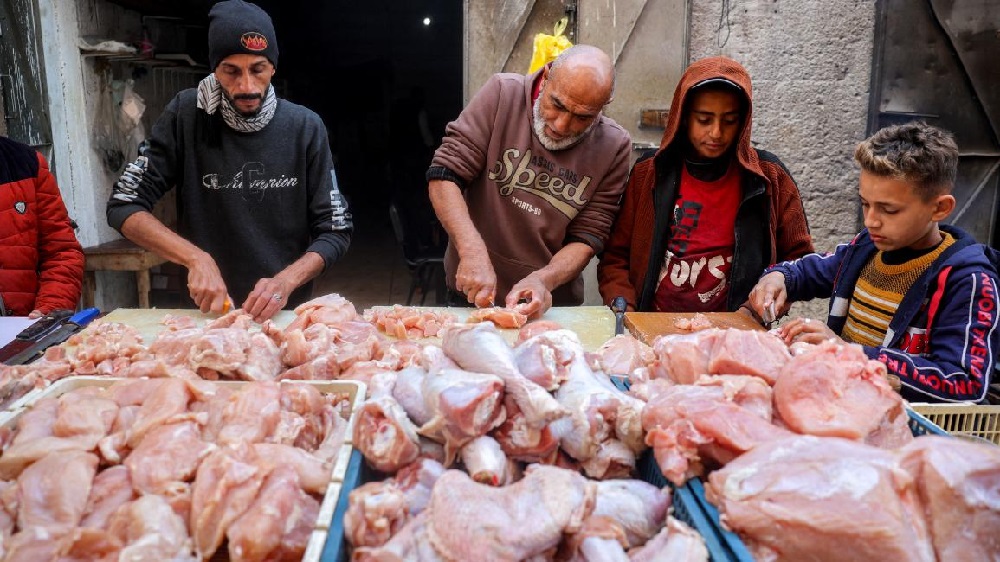
Watan–Over the past two weeks, white meat (poultry) and red meat have returned to the Gaza Strip after being absent from local markets for more than four months due to the closure of border crossings and restrictions imposed by Israel on goods, supplies, and aid to Palestinians suffering from the ongoing war for the second year.
The 2.4 million residents face severe shortages of food and essential goods as a result of Israel’s “drip-feed” policy since the beginning of its campaign against the Gaza Strip. This policy, combined with measures aimed at starving the population, seeks to exert military and economic pressure on Palestinian resistance groups to release Israeli captives.
Vegetable prices have surged to unprecedented levels compared to before the campaign in October 2023, with some items seeing price increases of over 300%. The price of a 25-kilogram sack of wheat flour has risen to $150, compared to its usual price of $25, due to the limited supply and distribution by international organizations.
Food insecurity has reached critical levels, affecting nearly 90% of the population, while unemployment has surpassed 90% and poverty exceeds 85%. A significant portion of the population previously relied on daily wage jobs, with average earnings of just 20 Israeli shekels for more than 10 hours of work, but these opportunities have largely vanished.
The lack of goods and worsening economic conditions have had severe humanitarian consequences, with over 50 reported deaths due to food shortages, according to data from local and international rights organizations.
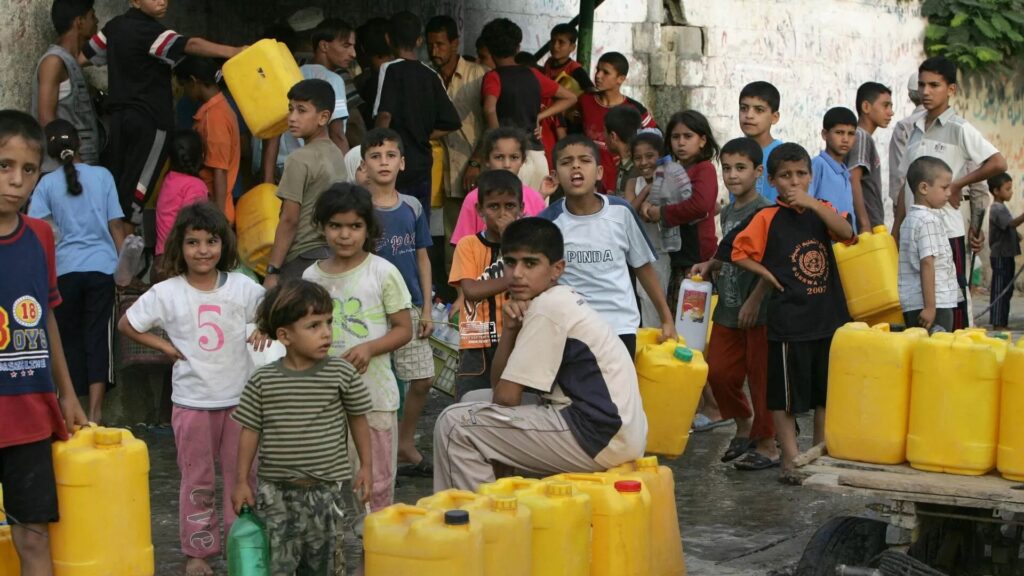
Poultry Prices and Consumer Behavior
When poultry became available again, many residents refrained from purchasing it due to its high cost. Initially, a kilogram of poultry was priced at 100 shekels, equivalent to the previous price of several chickens. This led to widespread boycotts by both families and displaced persons, which eventually caused a drop in prices. However, even with the reduced prices, many families remain unable to afford poultry due to limited cash flow and lack of income.
By the end of last week, poultry prices had dropped to 40–45 shekels per kilogram, while red meat was priced at 65 shekels per kilogram or higher. Chicken breast prices ranged between 60 and 65 shekels per kilogram. However, all these products are frozen rather than fresh.
Residents are also grappling with the problem of deteriorated currency notes. Due to Israeli restrictions, new currency cannot be introduced, forcing many people to rely on digital transactions, which are not accessible to most families. Compounding the crisis, many vendors refuse to accept 10-shekel coins, claiming they are counterfeit despite repeated assurances from monetary and economic authorities.
Coping with High Prices
Umm Ahmad Hassouna, a displaced resident of Khan Yunis, decided not to buy poultry for her family of 11 despite their requests. The cost of buying enough poultry for her family would be around $100, which she cannot afford due to displacement and lack of income. She also pointed out that many traders exploit the dire needs of displaced people by raising prices significantly.
Reports indicate that traders have been manipulating prices without oversight. In addition to the overall rise in costs, the cost-of-living index in Gaza has increased by 490% since the start of the war, reflecting the severe economic impact on the population.
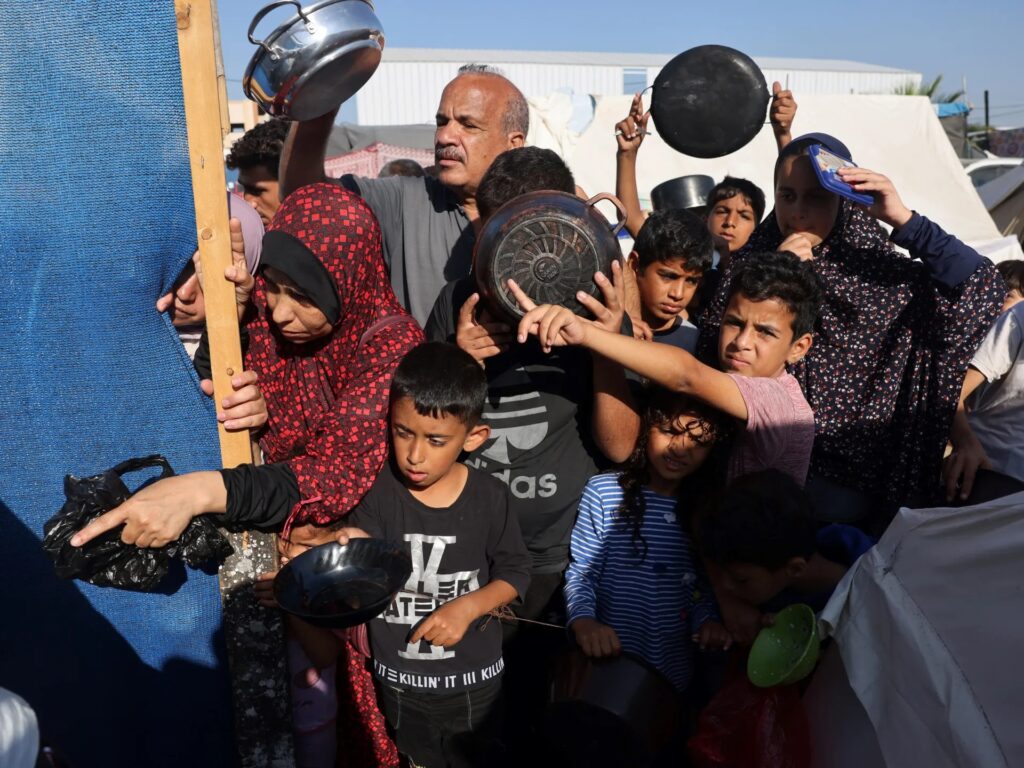
Financial Burden and Price Manipulation
Fadi Murad, another resident, was forced to buy poultry after a slight reduction in prices, as his children were craving fresh food after months of subsisting on canned goods. He expressed frustration over the lack of price regulation, saying that traders exploit the crisis to maximize profits.
Similarly, Ismail Naji bought two chickens and a kilogram of chicken breast for nearly 200 shekels (around $60), which used to be enough to buy 10 chickens. He noted that prices in Gaza now resemble those in wealthy countries, making it difficult for families to meet even their most basic needs.
Due to the scarcity of cash, many residents rely on digital bank transfers for purchases. However, some traders charge extra fees for electronic payments, adding further financial pressure on families. The dire economic situation, combined with high unemployment and poverty, continues to worsen, making daily life in Gaza increasingly difficult.

